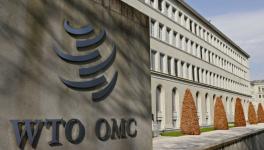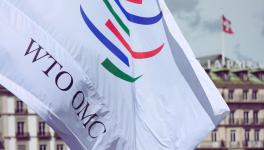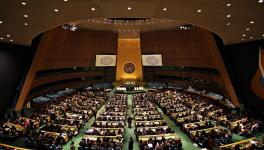India-US Joint Working Group on IPR
21 October 2014
To
The Hon’ble Prime Minister
South Block, Raisina Hill
New Delhi-110011
Fax: 23019545
Cc: Department of Industrial Policy & Promotion,
Ministry of Commerce & Industry, Government of India
SUBJECT: US-India Bilateral Relations on Intellectual Property
Dear Prime Minister Modi ji,
We, the undersigned, wish to share with you some of our concerns on India’s position on intellectual property (IP), particularly in the context of bilateral relations between the United States of America and India. We gather from the US-India Joint Statement dated 30 September 2014 that the Indian Government
agreeing on the need to foster innovation in a manner that promotes economic growth and job creation...committed to establish an annual high-level Intellectual Property (IP) Working Group with appropriate decision-making and technical-level meetings as part of the Trade Policy Forum.
The necessity for setting up the joint Indo-US IP Working Group is not clear. As the Department of Industrial Policy & Promotion (DIPP)‘s press release of 3 October 2014 mentions, there is already in operation an Indo-US Trade Policy Forum since 2010. Therefore, we request your Government to kindly make the purpose of this joint Working Group known to the people of India. We wish to further submit that the grant of decision-making powers to the new joint Working Group can be an ingression of sovereign policy space. Bilateral arrangements should not have the power to supersede domestic democratic decision-making processes mandated by the Constitution of India. We appreciate that bilateral parleys at the political and diplomatic levels may be necessary in order to address threats of unilateral action by the US administration. But such bilateralism in the area of IP must be approached with an extremely high degree of caution.
We wish to also emphasise that the Government be particularly wary of higher IP standards (benefiting US corporations) that are typically demanded by the US administration and its trade negotiators in bilateral and plurilateral negotiations. The US demands clearly go beyond what the World Trade Organisation (WTO) asks for from its member countries. Several regional trade agreements or bilateral investment treaties either signed by or being negotiated by the US bear evidence to this trend. Any bilateral negotiation on IP between India and the US would definitely witness demands on India to provide for higher standards of IP protection that are not required of us by the WTO’s IP agreement - TRIPS.
It is important to note that the new bilateral arrangement between the United States Government and the Government of India is being undertaken against the backdrop of heightened US political interest in India’s IP regime, which has been spurred on by its business interests. There have been intensified pressures on India; US putting India on its 2014 ‘Priority Watch List’ and the current Out-of-Cycle Review (OCR) of India’s IP regime being conducted by the US are recent examples of this. We support the position taken by Indian authorities to not go along with any such unilateral measures by the US Government. We insist that this stance of the Government of India be relentlessly maintained.
In case there is an intent to craft afresh our position on IP and its different dimensions, it should be pursued by a ‘National Working Group on IP’ working under the oversight of a Standing Committee of the Parliament of India. While formulating India’s positions on IP we trust that the Government of India will continue to withstand external pressures on this front. We urge the Government not to continue with the proposed annual forum on IP with the US, particularly as we do not have a matching domestic process. The process begun under the DIPP to frame a national IP Policy, first needs to be completed independently along with public consultation. Further, while framing a national IP Policy afresh, it needs to be kept in mind that India’s current IP laws are already compliant with existing international laws and allied obligations. We strongly urge you not to amend India's IP statutes to reduce the flexibilities currently available to safeguard the public interest such as affordable medical products, right to food and the access to knowledge.
As you are aware, India’s IP rules and their enforcement also have trans- boundary implications. As an emerging global force, as well as a responsible member of the global community, through its IP strategy India is well positioned to also articulate the concerns of many Low and Middle Income countries. The legitimate space for discussions on global IP standards is the WTO’s TRIPS Council, and it is in this multilateral forum that issues of concern between different countries should be discussed. India ought to reach out to a much larger constituency, even beyond the 160 country governments represented in the WTO, through the promotion of IP-related policies that are humane and which foster people-centred and planet-sensitive ‘development’.
We the undersigned, working in different sectors, would also like to collectively reiterate that higher standards of IP protection will not necessarily translate into ‘economic growth and job creation’ in a country such as India. IP-related policy cannot be dealt with as a mere trade issue. Sectors that entail the provision of basic human needs, such as health, agriculture, biodiversity, education, etc., can be adversely impacted by higher standards of IP protection and the dilution of flexibilities (for example, those in our existing Patent Act). Public policy goals with respect to scientific endeavours, technology development and local innovations that offer more sustainable options for the future – such as climate-adaptive seeds and Indian Systems of Medicine, can also be severely challenged by inappropriate domestic IP strategies.
Given the multiple domestic concerns that our IP Policy must respond to, we press for your Government to kindly view it with a holistic perspective that it warrants, rather than the official approach being subsumed by the relatively narrow confines of trade and economic policy.
We earnestly entreat you to take personal interest in this important matter.
Thank you.
Sincerely,
Signed
CONCERNED CITIZENS/GROUPS:
Shalini Bhutani, Legal Researcher & Policy Analyst
Gopa Kumar, Third World Network
Dinesh Abrol, National Working Group on Patent Laws
Kalyani Menon-Sen, Campaign for Affordable Trastuzumab
S. Srinivasan, Low Cost Standard Therapeutics (LOCOST)
Amit Sengupta, Jan Swasthya Abhiyan
Mira Shiva, Initiative for Health & Equity in Society and All India Drug Action Network
Get the latest reports & analysis with people's perspective on Protests, movements & deep analytical videos, discussions of the current affairs in your Telegram app. Subscribe to NewsClick's Telegram channel & get Real-Time updates on stories, as they get published on our website.
























